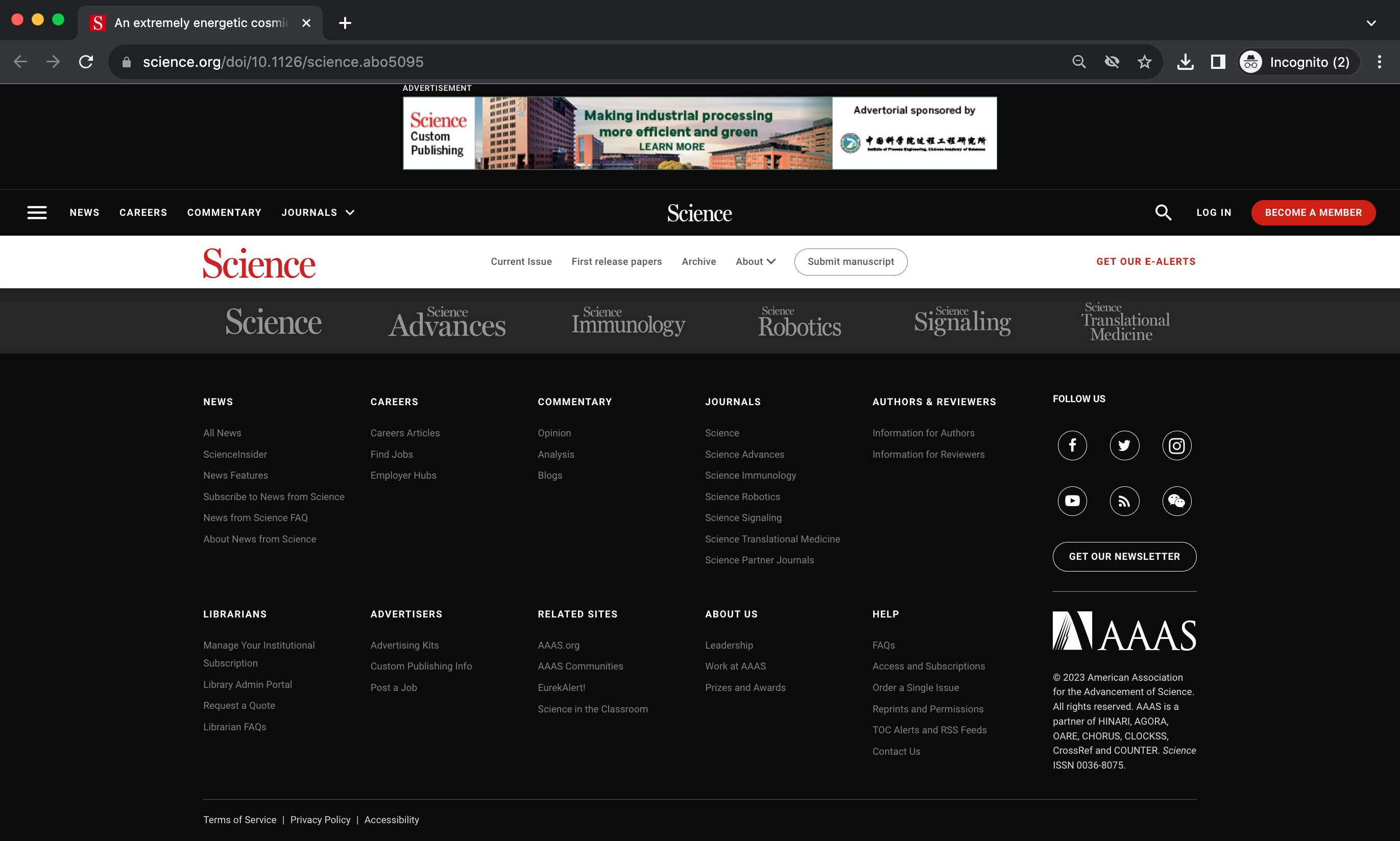Looking through google news feed just now I see an item that links directly to Science with the url https://www.science.org/doi/10.1126/science.abo5095 which combines science.org with a DOI. At the moment the page is empty - it contains a header and footer of the usual Science links but no article in the middle - a zombie page.
Other popular scientific news websites link to the same empty page when announcing what at least PubMed summarizes as An extremely energetic cosmic ray observed by a surface detector array, gives the abstract and links to a doiDOI that then goes to the zombie page.
What's so exciting is that a single 240 exa-electron volt (240E+18 eV) charged particle (possibly a proton or light nucleus, until it hit our atmosphere) had the kinetic energy of a tennis ball!
In the past (often in phys.org news items) I've clicked on links in popular scientific news articles that go directly to doi.org's "appology page" indicating that the number has not yet been assigned or linked.
In a half-day or so, these same links start working, so I need to save them and check them later.
Question: How do popular scientific news outlets and google news get doiDOI and doiDOI-like links that lead to zombie pages whenupon first release, but only later actually link to the intended scientific paper?
I'm interested in both:
- the mechanism by which a doiDOI is issued that doesn't work but will work in the future
- why, in 2023 this still happens in 2023
https://www.science.org/doi/10.1126/science.abo5095
Screen Shot 2023-11-25 at 9.02.52 AM.png (UTC+08):

